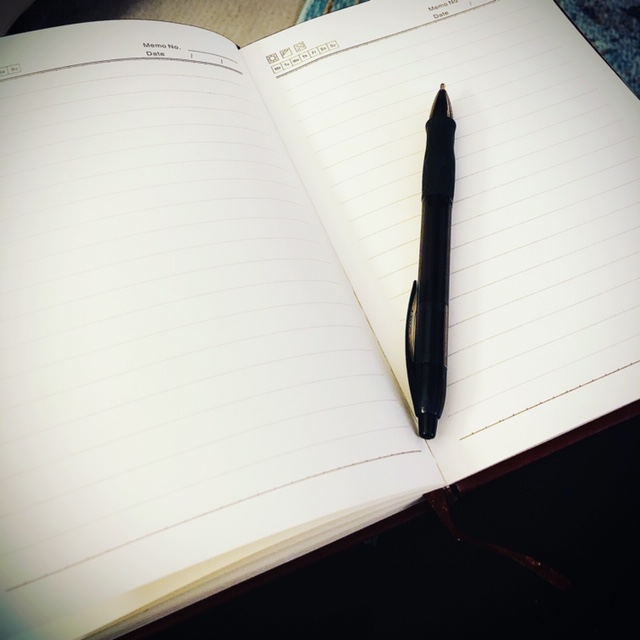Writing may become a long lost art form at some point as we become more comfortable typing our lives away. However, there is therapeutic value in picking up the good old pen and paper, particularly if we are writing about our thoughts and feelings. What is the value of writing? How come many people keep a journal? What do they get out of it?
In speaking to many people who keep a journal, some for a long time and some for a short period, the consensus seems to be that it provides a safe place to gather one’s thoughts, write out what is happening and develop some clarity, and also a place to invite in practices like gratitude or affirmations, which have additional value for our self-talk and subsequent mental health.
What stops people from keeping a journal? A number of things. Privacy concerns, for one. “What if somebody reads it?” is a common worry that can deter people from even trying. If this is a worry for you, I recommend shredding, ripping up, or somehow safely destroying whatever you have wrote right after. That way, you get the releasing benefit of the process without the fear of someone reading it. Another thing that seems to stop people from writing is perfectionism, “It reminds me of writing an essay in school and I didn’t like doing that.” Writing for self, about self, can take whatever form you want. You can write for 30 seconds if you want, you can draw, do bullet points, a few words, and express yourself however you would like. You do not need to be censoring, correcting punctuation and grammar, and writing for an audience with a journal. You are having a conversation with yourself and no one else is invited! Some people do not like actually writing and worry that they won’t get any benefit from typing. As mentioned before, there’s something different that happens in the brain when we actually write but, never fear, typing out, doing an emoji thought map, quick notes in your phone, or whatever other method of keeping a journal you are interested in, all have benefit. Remember that with journal writing, the goal is to take some time to check-in with yourself and explore ways to develop awareness, communicate, and articulate your emotions and thoughts to yourself. This does not just have to happen through writing. Another barrier is fear, or just general not knowing what to do or how to do it. People don’t readily embrace change and doing something like journal writing can be judged by people who have never done it. Try it in secret if you need to, it is not something that anyone needs to know about, so that this allows you to do it on your terms, in your way, and just observe what it is like for you and what benefit(s) it offers, if any for you.
I am a realist. I know that journal writing may not be for everybody. Introverts tend to gravitate more naturally towards journal writing because they are already introspective, thoughtful, and in their head and needing a release for that. Extroverts may not think of journal writing as helpful or a natural fit, but extroverts have a lot to say and may not always have the audience to say it to, so a journal is a nice addition to their social network for sharing, expression, and getting to know themselves. Journal writing allows you to pay attention to your emotional world, reduce emotional build-up, and have a form of release from the pressures and stressors of life. This is a healthier and easier way to do this, in my opinion, then escaping this and having it build-up and create issues in other parts of your life (e.g., substance use, anxiety, depression, other unhealthy behaviours).
Some people like to keep their journals as a record to look back on. This can give you a realistic perspective of your feelings over time (because our perception is rarely accurate about our past), as well as remind you of your growth and development, which we all have a blind spot for (we usually think that nothing has changed, even though it has). Some people do not like to save their journals, or have the privacy concerns mentioned before, and that is okay too. I rarely look back at my journals and I destroy my individual journals once they are full. Some of that, I think, is driven by shame and embarrassment, not just preventing others from reading about my feelings but also to hide it from myself (“Oh my goodness, I can’t believe I wrote that!”), but another part of it is that I view journal writing as a conversation with myself and, like conversations with other people, I’m not saving them to review down the road. They happen, I get value from them, and continue on in my journey.
The long and the short of it is, there is no right or wrong way to approach this. Journal, don’t journal, both are okay too. If you are curious, though, I would encourage you to check out my YouTube video on a journal prompt to get you going, and/or shake up your existing journal routine.
By Paige Abbott
Paige is a Registered Psychologist in Calgary, Alberta, Canada. She has had a private practice since 2019 and works with people with Addiction of any manifestation and mental health issues, including anxiety, anger, and relationship issues. She has kept a journal for the better part of 21 years and has likely filled up over 8 journals during that time (this isn’t an accurate number because, remember, she throws them away, but some of the books stand out because you spend a lot of time with each one!).


